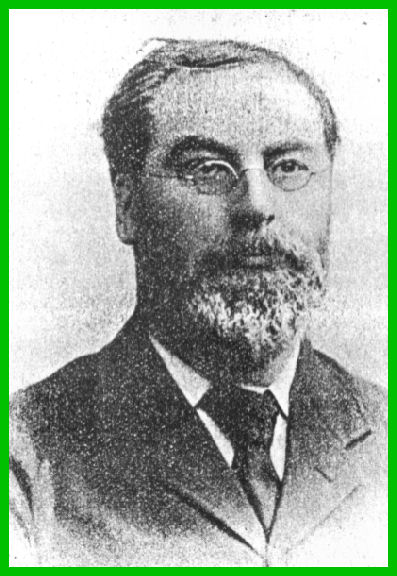

Thomas was a notable Gaelic scholar and pioneer of the Gaelic revival. It is interesting to note that Thomas was known as Tomás Ó Flannghaile (and also Tomás Ó Flannaoile ) in Irish and Thomas Flannery in English.
Thomas was born in Knocknakillew, Ballinrobe, County Mayo in 1846; the son of Patrick and Sarah (née Cloherty) Flannery. He was the second son in a large family which emigrated to the north of England in 1853, and settled in Manchester.
Two of his uncles were parish priests in the diocese of Tuam and he used to travel around with them on his frequent visits to Ireland. Fr. James Flannelly was parish priest of Milltown, County Galway, and died in 1875, aged 49. Fr. William Flannelly was parish priest of Crossboyne, County Mayo, and died in 1887 aged 75.
Thomas was taught by Peadar Ó hOisín in Mayo, and was subsequently educated at St. Wilfrid's School in Manchester where the teacher Corrigan was able to maintain his instruction in the Irish language.
His teaching career commenced in 1865 when he took up a post Catholic College in Hammersmith, London. He stayed in London for eight years, then returned north and taught for a couple of years at St. Bede's College in Manchester.
In 1876, Thomas returned to London to lecture at the Catholic Academy in Kensington. This lasted until 1887, when he moved to Forest Gate grammar school where he stayed until his retirement in 1893. After retiring from full time teaching, he assisted Professor Cusack at the City of London Day Training College up to 1907.
He was an acclaimed author - his volume of Irish essays entitled "For the Tongue of the Gael" (Dublin 1896) received the following review from the King's County Independent :
"... every page glistens with information ..."
He was an accomplished translator - his work entitled "Eachtra giolla an amurain, and other poems" (Dublin 1897), (Adventures of a Luckless Fellow, originally written in Irish by Red Donough MacNamara) received the following review from Dr. Douglas Hyde, President of the Gaelic League, and subsequently first President of Ireland :
"I congratulate you on your edition of Donnchadh Ruadh. Your translation is twenty times better than that of Standish H. O'Grady"
This was tremendous praise indeed from the future President of Ireland, since Standish Hayes O'Grady was a great Irish scholar in his own right.
He published a selection of Irish poetry for schools and colleges entitled "Duanaire na Macaoim" (Dublin 1910).
Thomas composed and translated a number of traditional songs in both Irish and English for the Denvir's Song Book series.
He worked as editor of numerous literary magazines, such as Laoi Oisín. He also contributed articles to The United Irishman, An Claidheamh Soluis (The Sword of Light), St. Patrick's, The Father Mathew Record, An Gaodhal, Irisleabhar na Gaedhilge (Gaelic Journal), The Irish Rosary, and Denvir's Irish Monthly Library.
In later years, he wrote a brilliant biography of Dr. John O'Donovan (1809 - 1861) which highlighted the latter's contribution to Irish topography.
Thomas married, and the couple raised two daughters and four sons.
The older daughter, Máire Ní Fhlannghaile, inherited her father's love of the Irish language. She was a diligent member of Conradh na Gaeilge for many years, and was elected Vice President - eventually succeeding Art Ó Briain as President.
The younger daughter, Nóra Ní Fhlannghaile, was a talented Irish dancer and singer, but died young in 1915.
The sons inherited their father's passion for Irish to a lesser degree than the daughters, although one son, Brian Ó Flannghaile, who was ordained Fr. Anthony Flannery when he joined the Benedictine Order in Ramsgate, was an accomplished Irish scholar and taught Irish Studies.
Thomas died in London on 4th November 1916 where he had lived for over forty years.
[his portrait is illustrated above; courtesy of the biography by Donal Lehane]